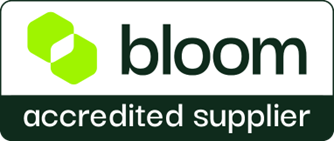Lucy Christie, Chirpy Heat
Heat network management is hard – it is a combination of delivering long term improvement and compliance at the same time as managing multiple short term operational issues that can range from customer enquiries and tariff setting to scheme technical challenges – often all at the same time. Some housing providers have characterised heat network whack-a-mole, never knowing where the next issue will pop up from.
As part of the solution to this challenge there is increasing use of procurement frameworks, allowing faster solutions that are cost effective, transparent and fair. There are now a number of frameworks and Dynamic Purchasing Systems (DPS) that provide heat network solutions, giving housing providers the confidence that suppliers are meeting the standards you require and saving time by getting pre-approved.
What is a procurement framework?
Frameworks are simply an agreement put in place to help public and third sector organisations to procure goods and services from a list of pre-approved suppliers, with pre-agreed terms and conditions and legal protections.
Generally, frameworks run for a specified timeframe, mostly between 1 to 4 years. Once a framework has expired, they can be re-tendered to open up the opportunity to other suppliers.
A huge range of goods and services are available to procure through framework opportunities.
What is a DPS?
A Dynamic Purchasing System (DPS) works in a similar way to a framework but does not have a fixed timeframe for suppliers to join.
Why use procurement frameworks?
Using frameworks offers organisations several key benefits:
- Competitive pricing – suppliers want to provide the best price to be in with a chance of being awarded business. This ensures that buyers get highly competitive pricing.
- Time savings – frameworks can expedite the procurement process by approving pre-negotiated terms and conditions, reducing the time required for negotiations with suppliers.
- Streamlining – frameworks provide a structured approach to procurement. This ultimately saves buyers time and resources by reducing the need to revisit their procurement processes for each purchase.
- Compliance – using frameworks can help to ensure that buyers are compliant with legal and regulatory requirements. This helps organisations to maintain good governance practices and reduce the risk of legal issues.
- Risk management – by using established frameworks, organisations benefit from the experience of others in mitigating potential risks.
- Flexibility – although frameworks offer structure, they do also allow for flexibility. Organisations can customize frameworks to suit their needs.
- Transparency – procurement frameworks offer standardised documentation, enhancing visibility and making easier to track procurement activities.
- Continuous improvement – frameworks are designed to be adaptable. Organisations can learn from the procurement cycle and identify areas for improvement, updating frameworks accordingly. This gives buyers the benefit of experience.
Frameworks with heat network services
An increasing number of frameworks are offering heat network services. The following are already up and running and can already offer solutions today:
Laser Energy – Consult, Design and Install DPS running until 2nd July 2028.
Crown Commercial Services – Demand Management & Renewables DPS until 27th November 2026.
Bloom – supports the UK public sector to buy and manage professional services from a choice of wide range of suppliers, whether regional or national. For more information see www.bloom.services
Fusion 21 – provides a range of national procurement and community regeneration services. For more information see www.fusion21.co.uk.
For more information on frameworks, please contact us at info@chirpyheat.com.


